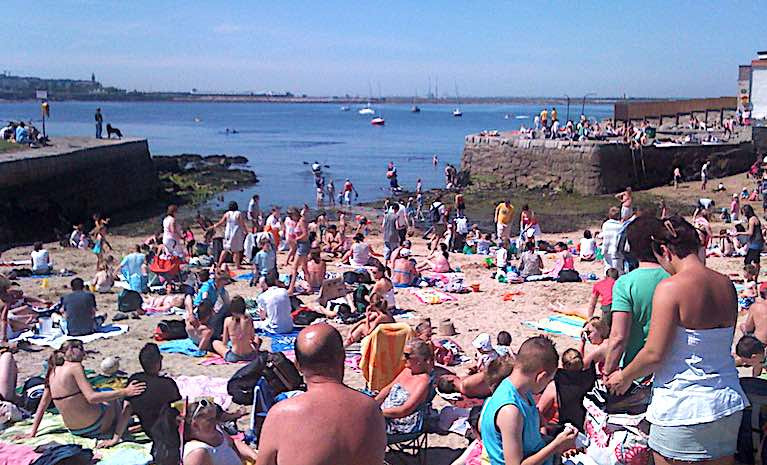Sea swimming’s explosion in popularity during the Covid-19 pandemic has led scientists to call for more rapid, detailed and year-round testing of bathing water quality.
As The Sunday Times reports today, a campaign on risks to swimmers’ health in Dublin Bay has also collected almost 13,000 signatures and has received testimonies for people who have been hospitalised due to e-coli.
The Save Our Sea (SOS) campaign in Dublin Bay initiated by Gerry Jones and his daughter Nadia is calling for more rapid water quality testing, more up to date safety information, and is calling for a more speedy upgrade of the Ringsend treatment plant.
The Environmental Protection Agency (EPA) has acknowledged the risks to water quality after periods of heavy rainfall which result in overflow from storm drains and from the Ringsend sewage treatment plant, among other sources.
However, it says it is awaiting a review of the EU Bathing Water Quality directive before recommending any legislative changes to allow for greater frequency of , and more detailed scope of, testing here.
Under current regulations, local authorities are only required to test bathing water quality once a month between May and September. Some local authorities test more frequently, but results are slow.
The tests under the EU bathing water quality directive are limited to E.coli (EC) and Intestinal enterococci (IE), based on World Health Organisation research.
University College Dublin (UCD) microbiologist Prof Wim Meijer explains that most E.coli are harmless.
However, VeroToxigenic E coli strains, contracted from ingesting water contaminated with animal faeces or from undercooked meat or contaminated salads, produce a powerful toxin which can cause “a range of symptoms, from bloody diarrhoea to kidney failure and may cause fatalities”
Prof Dearbháile Morris, director of NUI Galway (NUIG) Ryan Institute’s Centre for One Health, said current testing systems are outdated, as they only look for the total number of e-coli in a 100ml sample and not the detail.
A system for live bathing water monitoring named EU SWIM is at an advance stage, co-ordinated by UCD computer scientist Prof Gregory O’Hare and involving Prof Meijer.
The EU SWIM project involves nine beaches – six in the North and three in the Republic – where daily assessments of water quality are made, by predicting the amount of two faecal indicator bacteria (EC and IE) present at a given location.
Read more on The Sunday Times here































































